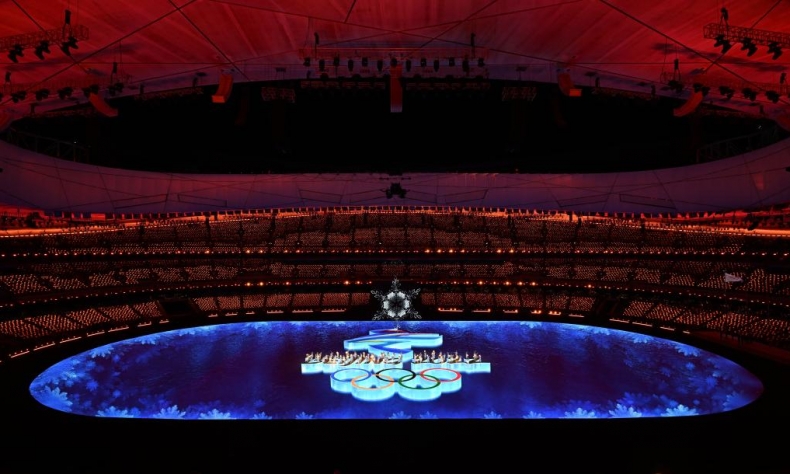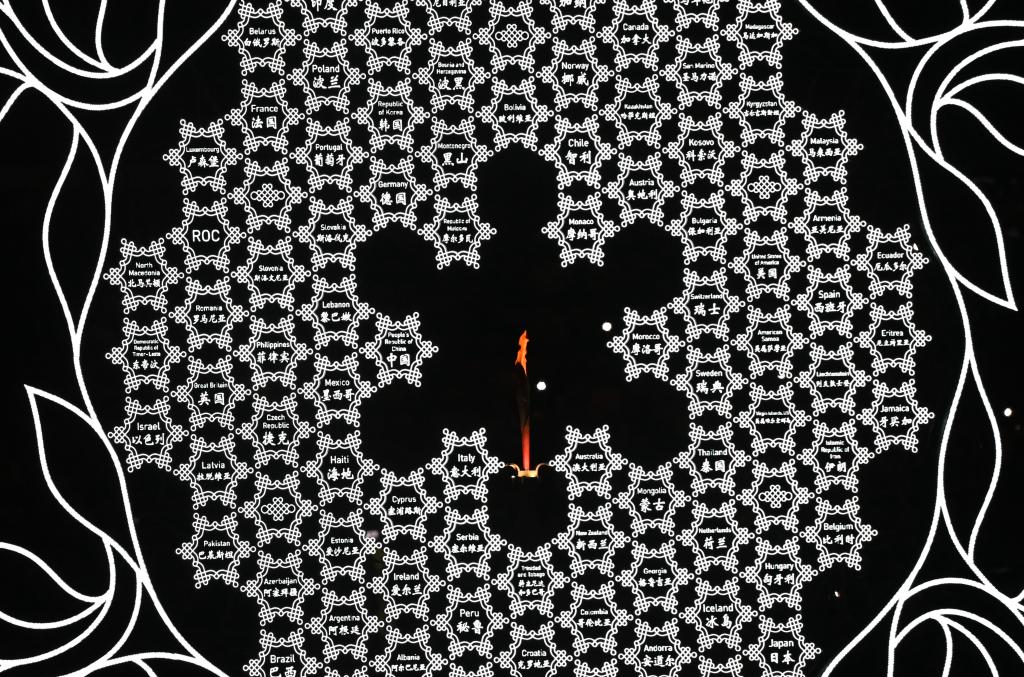Magical Beijing 2022

Italy awaits them with open arms, albeit aware that it will be competing with formidable competitors inspired by Beijing 2022 champions.
China’s tradition of bounteous hospitality is famous worldwide, as Confucius said, “To have friends come from afar, is it not a joy?” The Olympic Winter Games Beijing 2022 reaffirmed once more China’s abundant reception capacity, even amid this insidious era of the COVID-19 pandemic. The event also embodied the renewed promise of friendship between Chinese athletes and their international peers.
Everyone involved — athletes, sports technicians, spectators — were unequivocal in their recognition of Beijing 2022 as the best winter sports event ever. Seen in Europe via live TV coverage and excellent reportage from hundreds of broadcast and print media journalists, the Winter Games hosted by China was an unparalleled success.
The spectacular opening ceremony entrusted to the masterful direction of Zhang Yimou, who also orchestrated the opening ceremony of the 2008 Beijing Summer Olympics, did indeed, as auteur Zhang hoped, “amaze the whole world.” Its message was clearly expressed in the theme song, “Together for a Shared Future.”
The vast majority of nations, and most peoples around the world, not to mention the around 2,900 athletes representing the 91 countries participating in the event, shared this sentiment. In spite of the failed efforts of a few troublemakers to boycott the sports fest, nothing could mar the immense gratification it brought the IOC, and global sports world generally.
The seven-to-eight-hour time difference between China and Europe did nothing to prevent tens of millions of sports fans from watching live broadcasts of the games — from late afternoon through till the small hours. Millions of snow sports fans, especially the younger ones, thrilled at these epic events and their champions’ sterling performances.
Winter sports are still something of a novelty for the Chinese masses. But for the West, especially Europe, with its relatively mild winter climate and latitudes that are conducive to regular snowfall, they embody a kaleidoscopic competitive gala of more than one hundred years’ standing. The first international multi-sport winter event was held in 1901, five years after the first modern Olympics of 1896 held in Athens. It was Sweden that came up with the idea of organizing and hosting the initially biennial, and later four-yearly “Nordic Games” for exclusively Scandinavian countries.
But excellent ideas inevitably travel fast, far, and wide, both at home and abroad. The event’s success prompted the International Olympic Committee to propose, in 1911, a separate competition — the 1912 Olympics — held in Stockholm. Sweden, however, objected, keen to sustain the popularity of its so-called Nordic Games. Then Germany’s turn came. The country independently planned a Winter Olympics as a prelude to the 1916 Berlin Summer Games. But the break-out of World War I put paid to both events.

The concept of a Winter Olympics was revived in 1920, after coming to an agreement with Scandinavia. The first competition, eventually held in Chamonix in the French Alps in 1924, were a huge success. The IOC chose St. Moritz, Switzerland for the second Winter Olympics in 1928. This ever more spectacular and popular winter sports event was then held every four years. After World War II the Winter Olympics became the major winter attraction not only in Europe, but also on other continents, right through to the triumphal Beijing 2022.
From the European view, gained from TV and other media, Beijing 2022 revealed the extraordinary skill, talent, and efficiency of Chinese designers, architects, and technicians in staging the fantastic Winter Games in a green way, full of enchanting Chinese cultural elements, and creating the now famous ski resort in Hebei, adjacent to Beijing. After two years of battling the pandemic, the world as a whole had the chance to see and applaud the strict — and effective — health policy that the Chinese government has successfully brought into effect.
The introduction of sophisticated robotic technology as a substitute for human workers, so to uphold China’s high health standards, aroused universal astonishment and admiration. It enabled Beijing to keep the 30,000 guests that arrived from all corners of the globe under strict anti-epidemic control while monitoring their state of health. This, in turn, ensured the smooth running of multivarious activities within a huge area, defined as an “anti-COVID bubble.” Such an achievement beggars belief, evoking sincere admiration and respect.
If, as witnessed in wonderment, robots may be entrusted to prepare meals attuned to diverse tastes and dietary requirements, while humanistic waiters built of steel and plastic safely and neatly serve them, necessity may be said to have created an aestheticism all its own. This is indeed an accomplishment that makes us reflect on the enormous leap China has made along its path to modernization and technological excellence.
Not only the athletes and several thousand spectators privileged to enter the fabulous competition zones, but also those of us forced to stay at home in this COVID-19 era who have nevertheless, thanks to television, seen and followed its events, shall retain its dazzling images originating in a China that becomes ever closer to us all. For my part, I sorely rued not being able to be in Beijing during those scintillating days from the Lunar New Year through to February 20. But I can conjure up their joyful ambience and the just pride of the Chinese people.
Another page of China’s modern history has thus been written. I’m now thinking about how well-trained and dynamic the Chinese teams of ice and snow athletes will be in participating in the 2026 White Olympics in Milan-Cortina. Italy awaits them with open arms, albeit aware that it will be competing with formidable competitors inspired by Beijing 2022 champions.
Adriano Madaro is an Italian writer, journalist, and a well-known expert on China. He has published more than 30 books on modern China.
 Facebook
Facebook
 Twitter
Twitter
 Linkedin
Linkedin
 Google +
Google +










